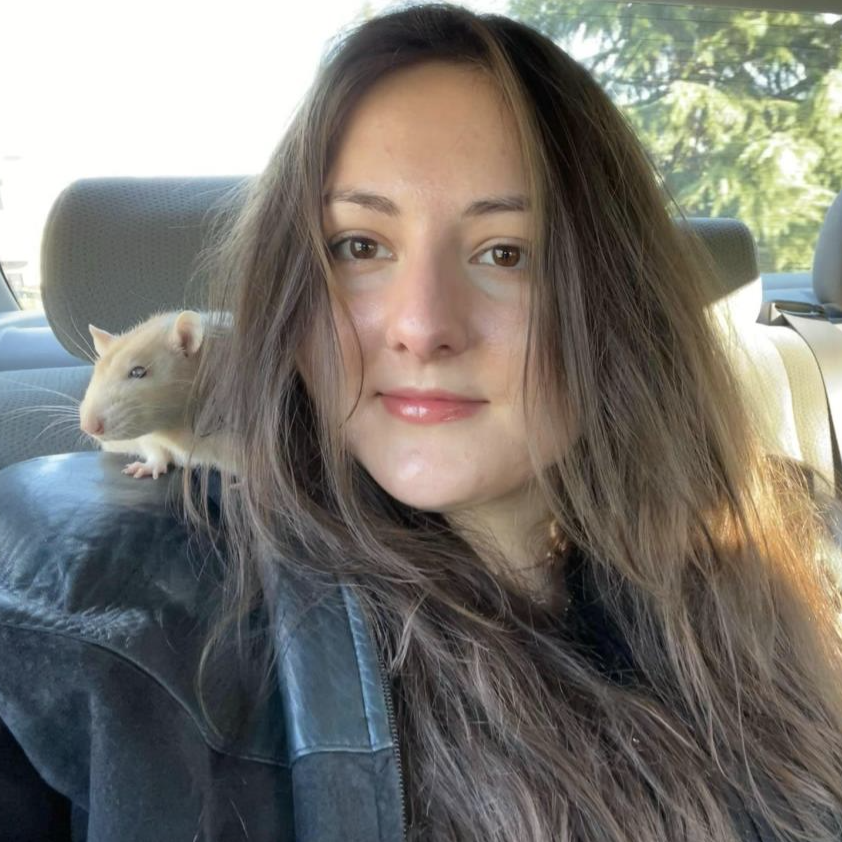
Amalia Urloiu
Amalia Urloiu’s Story
Amalia’s academic journey began in the Faculty of Science, where she soon noticed that lectures on unique animal behaviours and ecological niches were always what stuck in her memory over other biological concepts. However, she was left with unanswered questions on individual animal wellbeing, with courses prioritizing large-scale indicators like population size or biodiversity. Amalia transferred to Applied Animal Biology before her third year, realizing that the animal welfare courses were better suited to her passions and research interests. She entered the world of animal husbandry through the APBI 496 Shelter Animal Behaviour Practicum, where she learned about behaviour training techniques used to improve the wellbeing of both animals and people. She became more involved with the UBC Animal Welfare Program (AWP) through APBI 398, assisting research on Canadian dairy cattle veterinarian perspectives around the surplus calf issue.
Amalia accumulated more research experiences through APBI courses and volunteer opportunities within the AWP. In APBI 495, she developed a survey of black bear coexistence practices with The Fur-Bearers. Amalia later completed a Directed Study (APBI 497) with Dr. Kristen Walker on wildlife feeding in Stanley Park. Her volunteer research positions involved behaviour sampling recorded calf experiments at the UBC Dairy Centre using the BORIS program, and assisting with a study on reducing stress during the excitatory phase of isoflurane anesthesia in lab mice at the Weary Lab.
In her final year, as a Support Assistant for the AWP, Amalia developed “impact story” infographics that described how AWP research has impacted animal welfare, and performed qualitative data analysis for a literature review on survey methods for investigating public attitudes towards gene editing in livestock agriculture. She also worked on an undergraduate thesis (APBI 499) with Dr. Marina (Nina) von Keyserlingk on Canadian dairy farmer perspectives of cow and calf welfare issues during the periparturient period. Later in the year, Amalia joined a research collaboration with the AWP and UBC Centre of Applied Ethics, investigating student perspectives of antimicrobial peptide use in farm animals.
Amalia’s advice to students interested in research is to take the plunge and put yourself out there before you feel prepared or qualified to do so! “The only way you can gain research experience is to actually start! Anxieties around appearing uninformed, lacking confidence in my knowledge, and feeling like I needed my own structured research ideas from the get-go held me back from getting involved in research earlier in my degree. I learned that to build your knowledge and confidence, you need to start somewhere! Asking your TAs and professors about any senior undergraduates, graduate students or postdocs that could use volunteers is a great way to start. It is possible to find volunteer research work with lower time commitments that interfere less with classes or part-time jobs, and help build your qualifications and network to move on to paid research positions.”